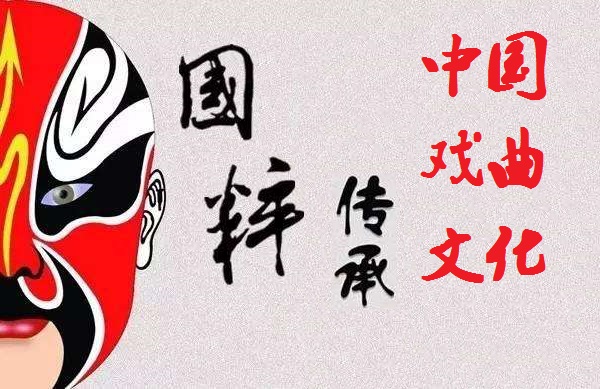
当前课程知识点:Culture and Tourism > Week 3: Heritage System: Managing and Safeguarding World Heritage Sites > 3.4 Rural Landscapes as Heritage > Article: ICOMOS Statutes
返回《Culture and Tourism》慕课在线视频课程列表
ICOMOS is an association established in 1965, the International Council on Monuments and Sites, ICOMOS, is an international non-governmental organisation under French law(Law of 1 July 1901 relating to contract of association).
ICOMOS is an associate partner of the United Nations Educational,Scientific and Cultural Organisation (UNESCO).
The ICOMOS Ethical Principles complement these Statues and the ICOMOS Rules of Procedure and should be adhered to in conjunction with them.
All terms used in these Statutes to designate a person with responsibilities are to be interpreted as implying that women and men are equally eligible to exercise such responsibilities.
1. What are the aims of the ICOMOS?
2. What actions and activities should ICOMOS take to achieve its aims?
You can organize your views by searching more information online or recalling the relative content you have learned from this course.
If you wish to learn more, please see the full article by following the [link](
http://www.icomoschina.org.cn/uploads/download/20150209153929_download.pdf)
返回《Culture and Tourism》慕课在线视频列表
-1.1 Introduction course outline and UNESCO World Heritage Program
--1.1.1 Introduction of culture and tourism course outline
--1.1.2 Introduction of UNESCO World Heritage Program(1)
--1.1.3 Introduction of UNESCO World Heritage Program(2)
-1.2 Cultural Heritage-1
--1.2.1 The meaning of culture heritage
--1.2.2 Criterion(i): masterpiece of human creative genius
--1.2.3 Criterion(ii): exhibit important interchange of human value
--1.2.4 Criterion(iii): bear a unique or at least exceptional testimony
--How can the public understand the importance of heritage?
-1.3 Cultural Heritage-2
--1.3.1 Criterion(iv): an outstanding example in human history
--1.3.2 Criterion(v): represent a culture or human interaction with environment
--1.3.3 Criterion(vi): associated with living traditions of outstanding universal significance
-1.4 Natural Heritage
--1.4.1 Natural heritage features, formations and criterions
--1.4.2 Cases studies of natural heritage
--Cultural landscape meanings: The case of West Lake, Hangzhou, China
--How to access heritage of your hometown?
-2.1 Mixed Culture and Natural Heritage
--2.1.1 Mixed heritage operational guidelines and cases (1)
--2.1.2 Mixed heritage operational guidelines and cases (2)
--2.1.3 Mixed heritage operational guidelines and cases(3)
-2.2 Authenticity, Integrity and Cultural Routes
--2.2.1 How to determine authenticity and integrity
--2.2.2 Heritage routes and heritage canals (1)
--2.2.3 Heritage routes and heritage canals (2)
--What do you think about cultural heritage categories?
-2.3 Special Heritage and Sustainable
--2.3.1 Physical remains of the history of technology and industry
--2.3.2 Transboundary Heritage, Serial Heritage, Serial/Transnational Heritage
--2.3.3 Intangible cultural heritage
--2.3.4 UNESCO World Heritage and Sustainable Tourism Programme
--Recovering the Memory of Ourselves for the Sustainable Cites
--Week 2 quiz
--What do you think about cultural heritage categories?
-3.1 The Australia’s Heritage System and Sydney Opera House
--3.1.1 The Australian Heritage System
--3.1.2 Case Study: The Sydney Opera House
-3.2 Role of the ISCCL and Cultural Landscape (1)
--3.2.2 Uluru-Kata Tjuta National Park
--3.2.3 Honghe Hani Rice Terraces
-3.3 Role of the ISCCL and Cultural Landscape (2)
--3.3.1 West Lake cultural landscape (1)
--3.3.2 West Lake cultural landscape (2)
-3.4 Rural Landscapes as Heritage
--3.4.1 ISCCL Principles Concerning Rural Landscapes as Heritage
-3.5 Case Study: Mongolian Altai
--3.5.1 Nature Culture Integration & the Mongolian Altai(1)
--3.5.2 Nature Culture Integration & the Mongolian Altai(2)
--Week 3 quiz
--Discussion: What do you think is the role of ISCCL?
-4.1 Introduction of the Meaning of 'landscape’
--4.1.1 Brief introduction of landscape and culture
--4.1.2 The conceptual framework of cultural landscape
-4.2 Landscape Values
--4.2.1 The word “landscape” itself and differences in Western, Eastern
--4.2.2 Cultural significance for heritage source
--Discussion: What do you think the cultural landscape attracts you?
-4.3 Reading the Landscape: Identification and Assessment
--4.3.1 Planning model for heritage conservation management policy
--4.3.2 Cultural landscape resources evaluation steps
--Article: Cultural mapping: Intangible values and engaging with communities with some reference to As
-4.4 Case Study: Wingecarribee Historic Landscape
--4.4.1 Case study:Wingecarribee historic landscape study(1)
--4.4.2 Case study:Wingecarribee historic landscape study(2)
--Week 4 quiz
--Discussion: What should we do to strengthen the protection of cultural landscape?
-5.1 Indigenous Tourism
--5.1.1 Indigenous tourism background
--5.1.2 World heritage and indigenous peoples
--5.1.3 Tourism issues at Canadian indigenous world heritage sites
--Discussion: What challenges indigenous World Heritage faces?
--Article: State conceptions of indigenous tourism in Chile
-5.2 Case Study and Conclusion: Great Expectations for Tourism
--5.2.1 Case study Pimachiowin Aki
--5.2.2 Conclusions:Great Expectations for Tourism
--Disussion: Do you have any experience of indigenous tourism?
--Week 5 quiz
-6.1 The Definition of Heritage in Heritage Performance Study
--6.1.1 The definition of heritage in heritage performance study
--6.1.2 Heritage performance and meaning making
--6.1.3 Two key issues emerging from qualitative study
-6.2 Heritage Performance - Evidence from Australia, England and USA
--6.2.1 Heritage performance - reinforcement
--6.2.2 Heritage Performance - inter-generational communication and social values
--6.2.3 Heritage performance - recognition and respect
--6.2.4 Heritage performance - education
--Article:Theorizing museum and heritage visiting
-6.3 The Conclusion of Heritage Performance
--6.3 The conclusion of heritage performance
--Week 6 quiz
--Discussion: What kinds of heritage performances have you learned in this week?
